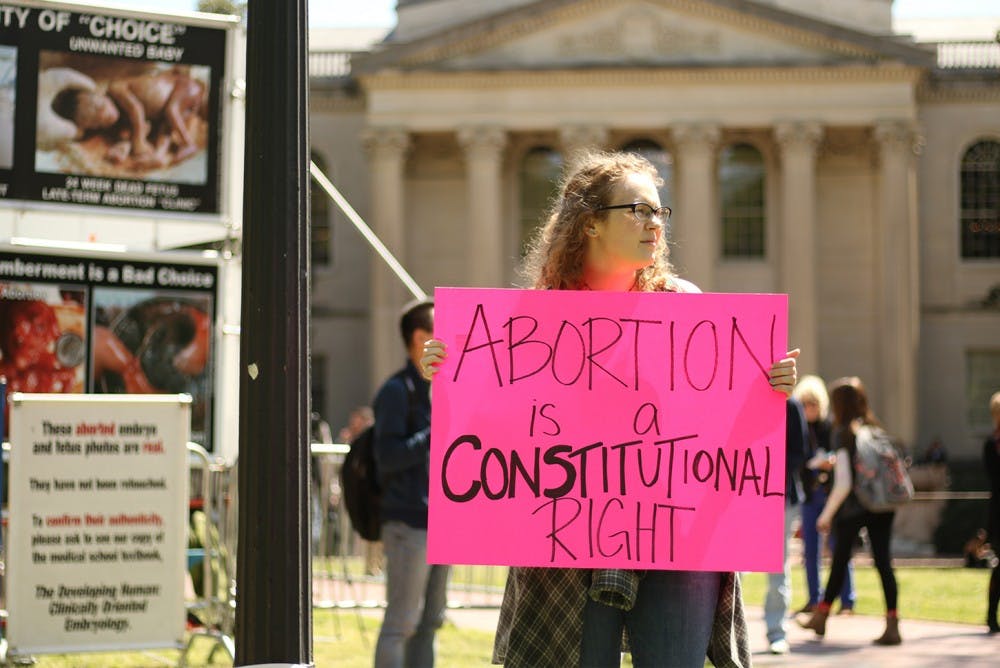The Genocide Awareness Project, a media outreach program from the Center for Bio-Ethical Reform, came to UNC for the fourth time yesterday. The program uses graphic images to compare abortions to various genocides.
Carolina Students for Life president Grace Garner said her organization sponsored the project to come to UNC.
“Some people say they’re offended by these photos, but maybe these people are offended by the photos because they can’t defend the decapitation and dismembering of little human children,” Garner said. “So that’s why we’re here.”
Maggie Egger, Center for Bio-Ethical Reform project director for Virginia, said she was pleased with the discussion that her organization’s display fostered.
“We were expecting pretty much what we’ve gotten here today — a lot of disagreement — but we welcome that,” Egger said. “We like it when students come out and protest and voice their opinion.”
And voice their opinions they did.
Students held signs next to the anti-abortion display reading, ‘Keep your laws off my body,’ ‘Our bodies, our choice,’ and ‘Please compost your bullshit.’
Junior Justine Schnitzler, who created a Facebook page to organize responses to the displays, said people needed to combat the message of the Genocide Awareness Project.




